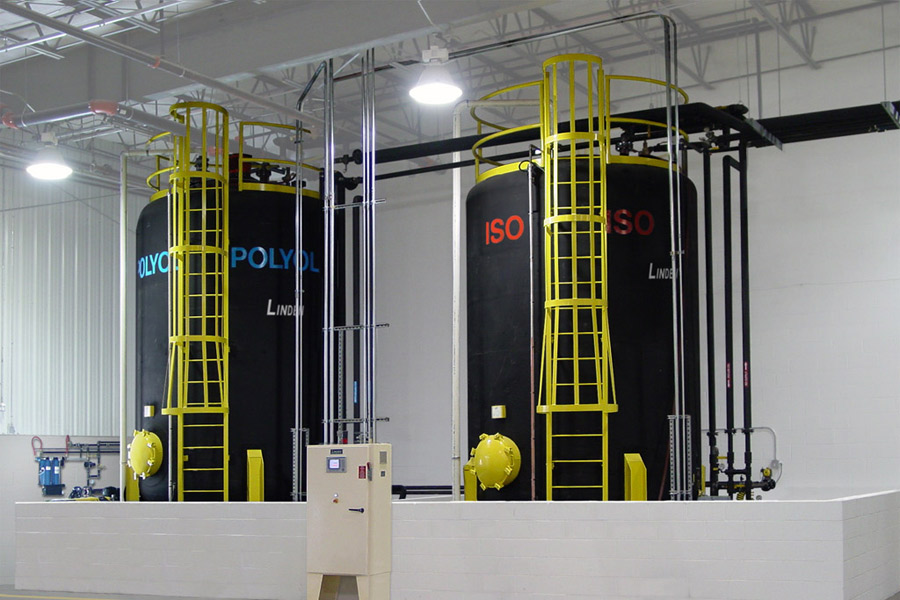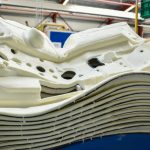Proactive Solutions Needed for Flexible Polyurethane Foam
Flexible polyurethane foam (FPF) is nearly ubiquitous in its use across a wide swath of consumer products. As a polymer produced from the reaction of polyols and isocyanates, FPF is characterized by a cellular structure that allows for some degree of compression and resilience while also providing a cushioning effect.
While being light, durable, supportive, and comfortable, flexible polyurethane foam can also be created or formed into a myriad of shapes and levels of firmness. This makes it an ideal material for a variety of consumer and commercial products including bedding, automotive interiors, packaging solutions, furniture, and carpet underlays.
Unfortunately for many, FPF is also tough to come by currently. Both the manufacturing of foam itself, and the production of the primary chemical ingredients used in manufacturing flexible polyurethane foam were crippled by the February winter storm that trampled through Texas and across the Gulf Coast region. The fallout from the weather system is still being measured.
The plant shutdowns, and ensuing restarts that followed, further taxed the flexible polyurethane foam supply chain that was already strained after the onset of the pandemic in 2020. With the demand for FPF products remaining high, and now supplies further dampened, it’s important for companies providing manufacturing services for industries like household and consumer goods, medical, construction, automotive, aerospace, and military to optimize their polyurethane services.
Embracing these practices now, and taking advantage of them consistently, will help you stay ahead of the curve in planning for and meeting demand despite unforeseen circumstances. You’ll be able to stay agile in your approach, anticipate potential roadblocks, and address issues proactively before they become significant problems. All the while, you’ll be equipped to continue to keep your customers satisfied and your production goals met.
Best Practices for Maximizing Flexible Polyurethane Production Right Now
Bulk Storage Solutions
When dealing with shortages and a scarcity concerning principle manufacturing chemicals and materials, the priority for many companies should be coming up with solutions to maximize storage so they can take advantage when those materials become available. Bulk storage will also allow them to safeguard against future or further delays in the supply chain.
It’s the No. 1 issue for many manufactures right now, said Linden Industries President and CEO Jon Cocco.
“There is a shortage of raw materials, and every one of our customers is trying to figure that out,” Cocco said. “I think it will be a short-term problem, with long-term implications. Processors are starting to think about the supply chain and how much raw material they need to have.”
Bulk storage enables manufacturers to save cost on material orders, maximizes uptime, can be integrated with existing polyurethane equipment, and will promote worker and environment safety. Such storage systems will also act as a bulwark against shortages when unpredictable circumstances — like the events in February — occur.
“We install bulk systems for companies. It seems like there have been a lot of enquiries for bulk storage systems,” Cocco said. “It could be that raw material companies are prioritizing bulk deliveries, trucks over totes. That may be why companies are interested in this.”
Storage is top-of-mind because of the still-high demand for flexible polyurethane foam coupled with the current shortage of principle materials needed for its manufacturing. As companies stretch to fill backlogs of orders, there will be an increased risk of chemical spills, material handling issues, and lost inventory — all issues that are magnified if using 55-gallon drums or totes to store chemicals and material in your facility. And any lost production material, or down time associated with it, hurts the bottom line when delivery of the shipment of chemicals or materials is uncertain.
The more material you’re able to purchase in one order, the more you’ll save in upfront material costs. But even ordering 55-gallon drums in bulk requires additional costs and thought. How do you store them in your facility? What kind of equipment will you use to distribute them once acquired?
Even larger material and chemical purchases can save more money but also require forethought. Chemical bulk storage tanks, which Linden Polyurethane offers in sizes ranging from 6,000-12,000 gallons each, are ideal for truck-based chemical deliveries for example. Linden Polyurethane can even provide larger solutions, such as 25,000-gallon railcar tank deliveries or multi-vessel tank farms supplied via railcar. Whatever your storage needs, our team will work with you to customize a solution specific to your building restrictions and production goals.
Learn more about our bulk storage solutions here.
Other Bulk Storage Benefits
It’s been all too common in recent weeks for many manufacturers, but they’ve had to deal with telling customers their order will be delayed due to a material shortage. It’s a two-fold issue as well; If you’re short on material, your equipment is obviously not in production to fill another order.
With a polyurethane storage solution from Linden Polyurethane, you’ll be able to order refills well in advance and ‘bank’ a significant amount of needed materials. All tanks are built to ASME standards and can be provided in either carbon steel with plastite lining or stainless steel. By storing the bulk of your material in one place, your output quality will improve by virtue of consistent chemical characteristics.
Each of our custom-designed polyurethane storage tanks are designed to be integrated into your existing production setup. With an assortment of standard and optional features — access ladders, unloading features, agitation systems, insulation, computerized systems and more — Linden Polyurethane storage systems will seamlessly incorporate into your production cell (metering systems, mix heads, gas nucleation equipment, ect.).
Lastly, improved storage capabilities will help protect both your workforce, your facility and the surrounding environment. If employees are manually moving and handling drums and totes in your facility, there is increased risk for accidents. A spill, or unended tote, can harm people, systems and the facility, and any spill is a potential environmental threat should it reach the drainage system. Polyurethane storage tanks drastically reduce the amount of interactions between your operators and workers, and the chemicals.
See the full list of standard and optional features of our storage tanks here.
Other Best Practices
Beyond improving storage, companies can prioritize self-cleaning and low maintenance equipment to further improve flexible polyurethane foam production in the current environment. Also, custom chemical mixing can augment performance and efficiency with those (for now) harder-to-acquire chemical materials.
The last thing you need to deal with during a time of material shortage is outdated or malfunctioning polyurethane foam spray equipment. Uptime is essential when the accessibility of materials is not guaranteed. At Linden Polyurethane, our spray equipment is built to withstand rigorous demands while requiring little-to-no maintenance throughout the entirety of its lifespan. Our high-performing mix heads are mechanically self-cleaning. And should repair be needed, our Zip-It & Ship-It rapid mix head repair program (which includes many of our competitors’ mix heads and pumps) can offer next-day service.
Our custom chemical mixing plan will help you become more efficient when you do have materials on hand. Pre-production blending equipment can be built into and integrated with bulk storage solutions allowing a more efficient transfer of material from one step to another. Once the material has been properly blended, gas infusion (or gas nucleation) systems can be used to support the homogenous distribution of the gas throughout the chemical mixture to improve material performance. Finally, a variety of mix head styles and configurations to meet different production goals will ensure efficient material distribution.
Find the Right Flexible Polyurethane Foam Solutions for You
Linden Polyurethane has been helping companies in multiple industries around the world for more than 30 years to not only support their production with polyurethane services that increase efficiency and throughput but also provide the right equipment for their needs.
Ready to craft solutions during this polyurethane producing shortage? Contact us today.





